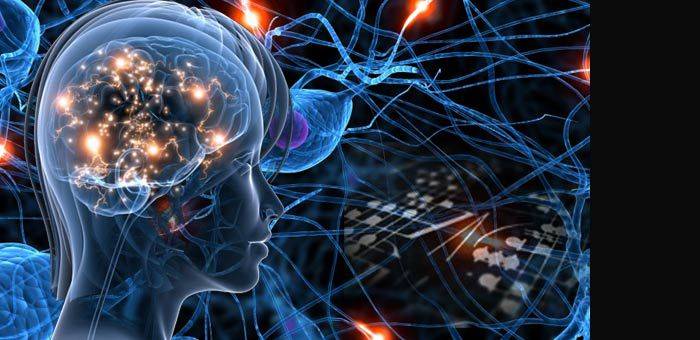Promoting the Change of the Theoretical Foundation of Economics
The conference "Bounded Rationality Updated" is the society's first international conference and is subtitled "Slow and Fast Thinking, Creativity and Rational Expectations". These are themes dear to the Director of the Italian Cultural Institute Riccardo Viale, himself a scholar and an expert of cognitive economics as well as a founder of the Simon Society. It makes perfect sense thus that the Italian Cultural Institute will be the main location for the very dense program of this conference which involves a host of prestigious panelists from several countries. The other location will be the Italian Academy at Columbia University.
What is the Simon Society, the society you co-founded?
And why Herbert Simon today?
It is an association that was born in Italy and takes the name of one ot the most important scientist of the 20th century, Herbert Simon, Noble Prize in Economics, founder of cognitive psychology, artificial intelligence, theory of organization and behavioral economics. It collects some of the most innovative scholars in economics as the Noble Prizes Daniel Kahneman and Kenneth Arrow, in cognitive science as Gerd Gigerenzer and James March and in computer science as Edward Feigenbaum and Pat Laugley. Its main goals are promoting the change of the theoretical foundation of economics towards a more realistic model of human behaviour, developing the convergence between social science and psychology, developing the computer simulation in social science, deepening the neural basis of human behaviour
What is Bounded rationality?
Human beings incur into biases and errors during reasoning and decision making process. Human mind has limited power in memory and computation and it can't cope with the huge amount of data from a complex environment. Therefore it can't make complex and difficult computations without error. Unfortunately the economic contemporary theory pretends that human beings are perfect reasoners and decision makers. That is it expects that they have a perfect rationality. Bounded Rationality theory supports the opposite claim: any theory in economics and social sciences should rely on the limited power of human mind that is unable to cope with the complexity of the environment.
How does it help understanding the mistakes behind the current financial crisis? Mistakes of neoclassic economic thought and mistakes of expectation...
Since the economic actor has a bounded rationality, financial markets are imperfect. That is its behavior is not as if the economic actor had optimal rational expectations based on a correct risk assessment that is the thesis of neoclassical economics. On the contrary he falls in many biases and traps starting with the flock effect that is the imitation behaviour of selling when the others are selling and buying when the others do the same. Obviously this irrational exuberance of the market, to quote the title of Robert Shiller's book, is reponsible of dangerous bubbles that when they burst produce the collapse of the market. These remarks are still more valid if we consider the distance from the economic reality of the trendy innovative and Derivative financial products as OTC and ETD or the Credit Default Swaps. They are impermeable to a risk assessment. What can we expect from a financial market, driven by irresponsible Hedge Funds, whose value is more than 10 times of the world real economic assets? One bubble after the other and one crisis after the other.
What is the goal of this summit?
The Conference, that will see the participation of 60 scientists from over the world and that will be opened by the most important European psychologist Gerd Gigerenzer of Max Planck Institute of Berlin and closed by the world renowed economist Joseph Stiglitz, has the goal to update the studies on bounded rationality and to deepen two hot questions in cognitive science: is the mind only one or is divided in two part, one intuitive , affective and fast and the other rational, analytic and slow? Is the creativity an expression of ordinary problem solving or is it something different?
What initiatives are in the future of the institute?
The Institute wants to be an active laboratory of new ideas and projects. I believe that its reputation in NY can be established if we show that we are innovative and original. Therefore it is not sufficient to bring only ready made events from Italy. The institute has an active role to play to show the centrality of Italian culture in the worldand to strenghten its cultural primacy in NY. In the close future we will inaugurate a wonderful esthetic and psychological experiment realized with Gianenzo Sperone and Sperone Westwater Gallery, an exibition that faces old and contemporary art works as Luca Giordano and Jacopo Bassano with Clemente, Palladino and Pistoletto. The title is Assonanze/Dissonanze and will be opened at the Institute until the 10th of May. In June the best three Italian Jazz men as Rava, Fresu and Bollani will come to play at Birdland one of the world capital of Jazz. And always in June there will be a special edition of Open Roads for the contemporary Italian Cinema. Lastly the Slow Living programme will continue with the Conference of Claudio Magris and with that of the composer Luca Lombardi.
----
To know more, time and locations download full conference program >>>>




































i-Italy
Facebook
Google+
This work may not be reproduced, in whole or in part, without prior written permission.
Questo lavoro non può essere riprodotto, in tutto o in parte, senza permesso scritto.